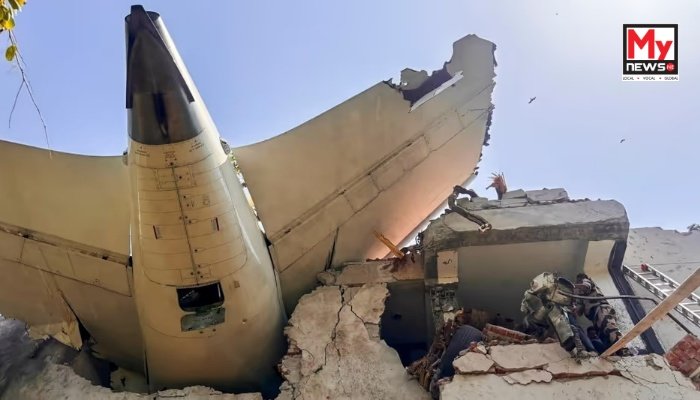Centre Forms High-Level Committee to Probe Ahmedabad Air India Crash, Seeks Aviation Safety Overhaul
National: In the wake of the tragic Air India plane crash in Ahmedabad on June 12 that claimed the lives of 241 passengers and caused additional casualties on the ground, the Government of India has constituted a high-level multi-disciplinary committee to examine the causes and formulate preventive measures. The ill-fated Boeing 787-8, en route to London Gatwick, crashed into a medical college complex shortly after takeoff, sending shockwaves across the nation and aviation industry.
The committee, chaired by Union Home Secretary Govind Mohan, has been tasked with conducting an extensive review of the incident, identifying the root causes, and developing robust Standard Operating Procedures (SOPs) to avert similar disasters in the future. The committee’s work will run parallel to investigations led by the Aircraft Accident Investigation Bureau (AAIB), which is probing the technical and operational aspects of the crash.
The Civil Aviation Ministry clarified that this panel will not replace ongoing statutory investigations, but will work to ensure policy reforms, improved coordination, and long-term safety enhancements. The committee’s report is expected within three months.
Comprising senior representatives from multiple agencies, including the Civil Aviation Secretary, Additional Secretary from the Home Ministry, officials from Gujarat’s home department, disaster response teams, and police, the panel also includes high-ranking officials from the Indian Air Force, Directorate General of Civil Aviation (DGCA), and the Bureau of Civil Aviation Security (BCAS). This diverse composition is intended to bring a comprehensive, interdisciplinary perspective to the investigation.
The committee’s scope includes evaluating mechanical failures, human error, weather-related issues, and regulatory lapses. It will also scrutinize emergency response effectiveness and inter-agency coordination during the rescue operations. This broader mandate reflects a shift towards systemic preparedness rather than reactive fixes.
A crucial part of the panel’s work will involve reviewing previous air crash records in India and analyzing existing protocols to identify gaps. The aim is to draft a unified SOP defining the roles of both central and state agencies in crisis response and post-crash management.
The panel is also empowered to access critical data, including flight data recorders and cockpit voice recordings, and may engage with international agencies, including aircraft manufacturers, to align findings with global aviation safety standards.
By integrating insights from multiple disciplines and fostering inter-agency cooperation, the committee is expected to pave the way for a long-overdue overhaul of India’s aviation safety framework. The move signals a proactive commitment by the government to not only investigate what went wrong but also ensure that such a tragedy is never repeated.
Read More: Manipur Police Crack Down on Insurgent Networks and Drug Trafficking in Statewide Operations

